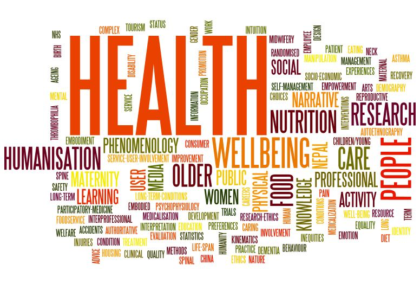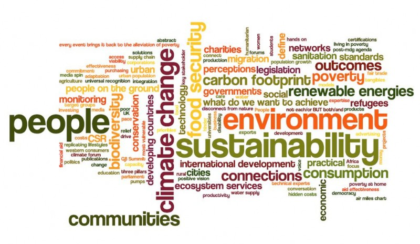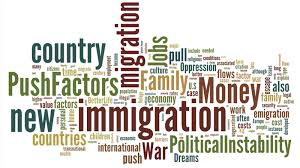UUSJ Guide to Questions for Candidates 2018
 Every election is an opportunity to engage with candidates as they host town halls and meet with voters in the weeks before we all vote. This provides a great way to lift up our UU concerns to our soon to be elected representatives, and the public alike. As a non-partisan organization, Unitarian Universalists for Social Justice (UUSJ) engages at the Federal level across the political spectrum to work for positive change and advocate for UU values. We hope you find our Guide to Questions for Candidates and toolkit of tips useful as you make plans to engage directly with candidates and the public to raise our issues of concern.
Every election is an opportunity to engage with candidates as they host town halls and meet with voters in the weeks before we all vote. This provides a great way to lift up our UU concerns to our soon to be elected representatives, and the public alike. As a non-partisan organization, Unitarian Universalists for Social Justice (UUSJ) engages at the Federal level across the political spectrum to work for positive change and advocate for UU values. We hope you find our Guide to Questions for Candidates and toolkit of tips useful as you make plans to engage directly with candidates and the public to raise our issues of concern.
Table of Contents
(click on title to go to that section)
— Introduction & Purpose of this Guide
— How to Use this Guide
— Questions for Candidates
— More Resources and About UUSJ
You can download the full Guide and all the questions by clicking here. If you have any problems contact us at gotv@uusj.org.
Funding for this Guide was supported in part by the UU Funding Program.
Introduction & Purpose of this Guide
UUs are great at conducting traditional voter registration and voter mobilization efforts. This Guide intends to:
- support UUs that also wish to participate in public forums with candidates and engage them on social justice issues from a faith-based perspective; and
- help UUs consider how they will vote in the 2018 midterm elections and better understand how issues are grounded in our faith.
The Guide focuses on three issues that reflect UU values — immigration, economic justice, and environmental and climate justice. These issues reflect UU Statements of Conscience and other UU positions. The sample questions reflect timely issues that are under consideration in Congress or fall to Congress for action.
Unitarian Universalist congregations affirm and promote seven Principles, which we hold as strong values and moral guides. From these principles grow our expressions of love, our work for social justice and our quest for “justice, equity, and compassion in human relations” and the affirmation of “the inherent worth and dignity of every person.” We are especially inspired by our 4th Principle, a free and responsible search for truth and meaning, and our 5th Principle, which undergirds our support of the democratic process.
The sample questions in this Guide are designed for candidates for the US Congress. They can be modified and adapted to address specific local issues and perspectives. The Guide and questions can be used by individuals or in congregational and community discussions on the issues.
Why should we bother? We are living out our 5th Principle – the use of the democratic process. Engaging with candidates creates opportunities to build relationships for future conversations with elected officials.
Asking questions grounded in UU values, gives us an opportunity to raise our concerns not only with candidates but with the general public, too.
Candidates need to hear from us! What candidates hear on the campaign trail informs them of the issues their constituents care about and can influence the actions they are willing to take, if elected. These relationships are a vital part of the full civic engagement cycle–from candidate to elected official to public accountability. After an election UUs need to continue to raise our voices on critical social justice issues–civic engagement and advocacy is a year-round responsibility!
How to Use This Guide
Become a better informed and engaged voter. Raise our UU issues with candidates and your local community by using this Guide.
Here are two ways to make the most of this Guide:
- Use the questions in this Guide “as is” or adapt them to raise questions with your candidates for the US Congress. Use the Guide as an individual or along with members of your congregation. OR
- Use this Guide as a starting point in your congregation to begin a discernment process for in-depth discussion on issues that are important to your congregation and community. Develop your own questions for state and/or Federal candidates and localize your questions.
![]() Have a Plan of Engagement with Candidates. Click here for tips to create a plan to find and engage candidates – as an individual or group from your congregation – to raise your UU issues of concern.
Have a Plan of Engagement with Candidates. Click here for tips to create a plan to find and engage candidates – as an individual or group from your congregation – to raise your UU issues of concern.
Questions for Candidates
Below are three sets of questions to be used for US Senate and House races, that can be used as is or modified to better fit your particular state or local concerns. It’s important to be clear about UU social justice issues that are of concern to you, your congregation and community and to prepare your questions in advance. You can link to additional questions at the end of each section.
Immigration Justice
Question: What will you do to support immigrants, regardless of legal status, especially those that currently have Deferred Action for Childhood Arrival (DACA) or Temporary Protected Status?
UU perspective: We believe in the inherent worth and dignity of every person and their right to feel safe and to have basic food and shelter. Challenging economic and social conditions such as gang and domestic violence that drive migration, especially from Central America, are often linked to US policies or environmental issues. We support clear paths to permanent residency and citizenship and work visas that allow multiple entries and discourage exploitation of labor. We call for adherence to Constitutional requirements for equal protection regardless of citizenship status as well as adherence to international law protecting those seeking asylum.
Question: What are your views on the detention of families and children to deter border crossing or on deporting law-abiding legal residents with American children or spouses?
UU perspective: The current Administration’s restrictive and punishing policies harm migrants and our asylum system and conflict with our 2nd Principle which calls for justice, equity and compassion in human relations.. The “zero tolerance” family separation of border crossers traumatized thousands, with dozens of children still not reunited with their families. Additionally, the number of unaccompanied minors being kept in detention is growing (12,500 as of October 2018). Keeping asylum-seeking families in detention uses many times more of our tax dollars than proven community-based alternatives. Also, abusive treatment of detainees by Immigration and Customs Enforcement (ICE) agents and contractors has been documented. Moral immigration laws that are just and humane contribute to the public good, define the parameters of legal immigration, and restrict harmful influences such as criminal intent, epidemics, and contraband. We advocate improved technology for surveillance, not more miles of a separation wall, to help secure our borders.
Question: What are your views on the recent drastic reductions in the refugee resettlement ceiling and the ban on any refugees from a number of Muslim-majority countries?
UU perspective: We believe the US has a moral responsibility to support refugees and that moral immigration policy would include the provision of asylum for refugees and others living in fear of violence or retribution. While the world is in the midst of the largest global migration on record, any reduction in the refugee admissions cap is an affront to the moral responsibility and humanitarian values of the US as a safe haven for those fleeing violence and insecurity. The current administration had set the 2018 cap at historic low levels (45,000) and has not dedicated necessary resources to the processing of even that low level. Levels for 2019 were set even lower. UUs stand with refugees, and we have for 80 years.
Question: For those who cross our borders requesting asylum, do you believe that credible fear of gang violence, domestic violence, or harassment of LGBTQ individuals should be among the justifications for granting asylum?
UU perspective: We believe in the inherent worth and dignity of every person and in the human right of everyone to feel safe. Just as in the case of refugees fleeing countries at war or experiencing civil conflict, persons fleeing countries which have a high level of gang-related violence, in part the outcome of past US policies, deserve to be considered for asylum. Individuals who have suffered documented violence, discrimination, and harassment based on their sexual orientation must continue to be considered for asylum as should women who have a credible fear of death or severe injury from domestic abuse by their partners.
Click HERE to see more questions.

Economic Security and Justice for All
Question: New work requirements and budget cuts to social safety net programs such as SNAP and Medicaid will shred the social safety net for low-income Americans. What will you do to stop these counterproductive proposals?
UU perspective: The Administration supports adding new work requirements for programs that support low-income Americans, such as Medicaid, SNAP (food stamps), and housing support. Some leaders in Congress have said the loss of Federal revenue due to this year’s tax-cut legislation justifies cutting these programs to help reduce the deficit. Yet studies show that programs that support low-income Americans help alleviate poverty and lead to increased self-sufficiency. Limiting access to food, medical care, transportation, and housing to people who are not able to work doesn’t honor their inherent worth and dignity.
Question: How would you ensure that our country’s growing prosperity benefits everyone and that tax cuts help average Americans rather than those who need it least?
UU perspective: UUs have long been concerned about growing economic disparities, which hurts low-income Americans and keep them from fully participating in our Nation’s prosperity. Last year’s tax cuts favored the wealthiest among us. UUs believe that overcoming economic inequalities, involving public investment to support healthcare (including pre-existing conditions), nutrition, education, and clean air and water should be a top priority.
Question: How would you propose to ensure all people have access to quality, affordable healthcare? Would you require the mandatory inclusion of pre-existing conditions in all healthcare coverage?
UU perspective: UUs have long advocated for universal healthcare. Access to quality and affordable care, including coverage of pre-existing conditions, is essential to ensure a society where all have an opportunity for education and jobs and to make strong communities.
Click HERE to see more questions.

Environmental and Climate Justice
Question: A recent scientific report to the United Nations projects rapidly rising temperatures, extreme storms and heat waves, and coastal devastation unless immediate and drastic changes are made to reduce greenhouse gas emissions and limit our use of fossil fuels within the next 12 years. To avoid devastating changes to the planet and civilization, what policies will you support to avert these catastrophes?
UU perspective: Our 7th Principle calls us to have respect for the interdependent web of all existence of which we are a part. We agree with most scientists and 13 federal agencies that humans are the primary cause of the global temperature rise. The United Nations urgently warns that rapid action must be taken within 12 years (before 2030) to limit global warming to 1.5 degrees Celsius, to avoid the worst damage from climate change. We believe the US should be a leader in the reduction of greenhouse gas emissions, and in the shift from support for and use of fossil fuels to renewable energy technologies and improved energy efficiency. Bold action, both individually and collectively, is required to address these alarming trends.
Question: How will you ensure that we all, including the most vulnerable, have access to clean and affordable water, and ensure the air we breathe is clean today and for future generations?
UU perspective: We believe that a healthy environment is a basic human right and includes access to clean and affordable water, and clean air. Water is essential for life, but access to safe drinking water and adequate sanitation is not universally available in the US. After decades of progress to reduce hazardous air pollutants, national clean air regulations are being loosened or eliminated, putting our health at risk. Lower income Americans and those facing economic crises struggle most with the negative consequences of poor water quality and clean air policies.
Question: Since the US is in the process of withdrawing from the Paris climate accord, how should the US be involved in international efforts to mitigate and adapt to extreme weather changes including rising sea-levels that particularly impact vulnerable communities?
UU perspective: Guided by an Action of Immediate Witness in support of joining the Paris Agreement and our 2nd Principle to affirm and promote justice, equity, and compassion in human relations, we believe the US should remain a party to the Paris Agreement because climate change is a global threat that requires global solutions. We support the Agreement as an effort by the international community to mitigate and adapt to climate change to help the world’s most vulnerable communities. The Agreement requires transparent funding, new technology, and capacity building. Ignoring this urgent call to action could lead to more global unrest and mass migration. Bold action, both individually and collectively, is required by all nations to address this existential threat.
Question: Since international demand for renewable energy is expanding, what role should U.S. public policy play to advance renewable energy technology and usage, like solar, wind, and geothermal?
UU perspective: Guided by our 2nd and 7th Principles to affirm and promote justice, equity, and compassion in human relations and respect for the interdependent web of all existence of which we are a part, UUs believe we have a moral responsibility to Earth, to all beings, and to future generations to do everything in our power to bring about a swift transition from fossil fuels to a sustainable energy economy. The world’s dependence on coal and petroleum comes at great cost to the environment and human health. US public investment in advanced technologies for renewable energy would demonstrate leadership as well as provide jobs, reduce dependence on fossil fuels, foster economic development, and improve our national security. We support moving away from subsidies for the fossil fuel sector and investing in renewable energy.
Question: The transportation sector is a leading contributor to greenhouse gases. Do you agree with freezing fuel economy standards at 2020 levels, or increasing them every year? Do you support allowing states to set their own standards, as California has done?
UU Perspective: The clean car standards are the most significant American effort to curb climate pollution. It is crucial to increase fuel economy standards every year. Increasing fuel economy standards also supports American innovation and auto manufacturing jobs. As UUs, our 5th principle promotes the democratic process. The Environmental Protection Agency (EPA) must consider feedback received during the public hearings and public comment period during the federal rulemaking process that is going on now. There should be a Congressional hearing that allows back-and-forth on the input. Congress should direct the National Academy of Sciences to provide supplemental data and analysis to the EPA before its final decision to rollback clean car rules.
Click HERE to see more questions.
More Resources and About UUSJ
We hope you have found this Guide helpful. Any feedback will be most welcome as we gear up for the 2020 elections. We will continue our UUSJ advocacy work throughout the year, and will hold our elected officials accountable for the promises made during their political campaigns. If you would like to help us develop and grow a rapid response UU network please contact us. Send comments, questions and suggestions to advocacy@uusj.org.
More Resources:
- “Write Here! Write Now! Toolkit for Letter-writing Campaigns.” Many UU congregations across the country use this toolkit to write letters to their Members of Congress on key issues, which UUSJ’s Capitol Hill Advocacy Corps then delivers to Capitol Hill, often in face-to-face meetings with Congressional staff. To learn more contact advocacy@uusj.org.
- “UUs Mobilizing for the 2018 Midterm Election” toolkit, which links to resources and congregational tabling signage, sign-up forms, etc.
- For advocacy resources and the PDF version of the guide visit www.uusj.org and link to the “advocacy“ tab.
About UUSJ
UUSJ’s mission is to mobilize and amplify the voices of UUs as we seek to change the world through acts of love and justice. We engage Members of Congress across the political spectrum, promoting UU values and voices. As a 501(c)3(h) organization, UUSJ is nonpartisan and does not endorse candidates or parties.
When you support UUSJ with a donation you make our advocacy possible on behalf of UUs across the country.



